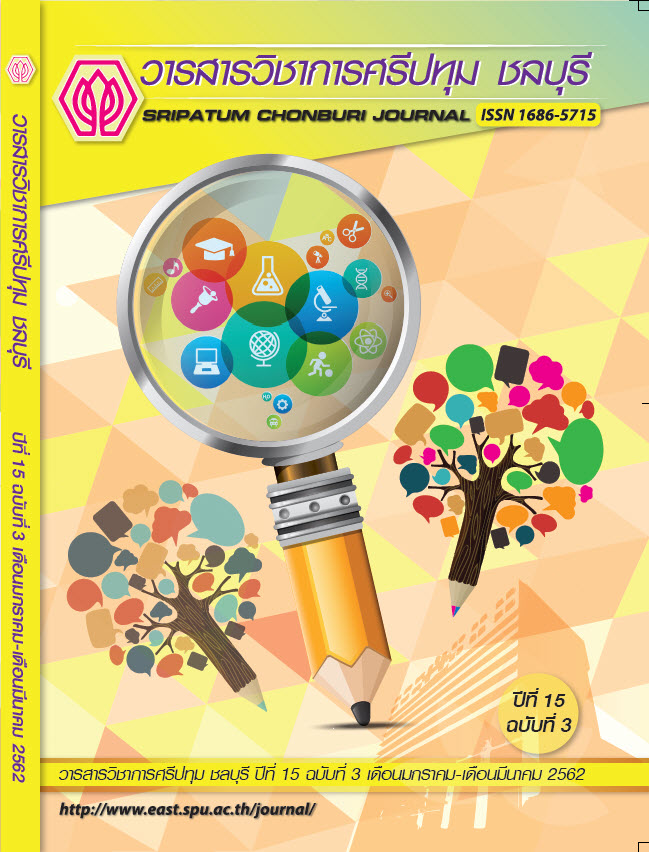FACTORS INFLUENCING THE ACHIEVEMENT OF ADMINISTRATION INFORMATION AND COMMUNICATION TECHNOLOGY SYSTEM FOR THE RAJABHAT UNIVERSITY IN THAILAND
Keywords:
communicative technological system, Rajabhat Universities, achievement of administrationAbstract
This research purpose was to investigate the level of achievement of communicative technological systematic administration, examine the factors that is influencing the achievement, and provide the recommendation contributing to the improvement of communicative technological systems. This is a quantitative research using random method to acquire 400 informants-managerial staffs, lecturers, and officers- as the target group from Rajabhat Universities in Ratanakosin group. The close and open ended questionnaire was used as a research tool.
It is found that the factors influencing the achievement of communicative technological systematic administration can be prioritized as followed: 1) the clarity of objectives and goals of communicative technological systematic policy, 2) Priority of budget spending, 3) Degree of supportive level from top management, 4) Degree of supportive level from government, 5) Subsidy of electronic devices and budget to motivate staff to improve their job performance through those devices, 6) Efficiency of communication, 7) Degree of supportive level from private sectors, and 8) Career path motivation concerning the use of electronic devices. The researcher suggested that executive management should play a crucial role in the improvement of communicative technological systematic administration and the universities need to scaffold the precise master operational plan aligning with short and long term goals based on effective annual budgeting plan. Also, budgeting spending has influenced the level of achievement, so the proportion between the budget and communicative technological systematic policy should be 1:0.45. The executive management should enhance the improvement of communicative technological systematic policy, and the candidates of dean election should deliver their visions considering communicative technological systematic policy.
References
Briggs, Barry, & Kassner, Eduardo. (2016). Enterprise cloud strategy. London, UK: Microsoft & Pearson.
Beheshti, Hooshang M. (2004). The impact of IT on SMEs in the United States. Information Man Agement & Computer Security, 12(4), pp. 318-327.
Bowden, S., et al. (2006). Mobile ICT support for construction process improvement. Automation in Construction, 15(5), pp. 664-676.
Bourgeois, David T. (2014). Information systems for business and beyond. Washington, DC: The Saylor Academy.
Laudon, Kenneth C., & Laudon, Jane P. (2006). Management information systems: Managing the digital firm (9th ed.). Upper Saddle River, NJ: Pearson Education.
Makido, T., Kimura, S., & Mour dourkoutas, P. (2003). IT and competitive advantage: The case of
Japanese manufacturing companies. European Business Review, 15(5), pp. 307-311.
Shin, Yoonseok, et al. (2008). Application of information technology for mass customization in the housing construction industry in Korea (Online). Available: https://www.sciencedirect.com/ science/article/pii/S0926580508000253 [2017, February 1].
Downloads
Published
Issue
Section
License
บทความทุกบทความเป็นลิขสิทธิ์ของวารสารวิชาการศรีปทุม ชลบุรี



